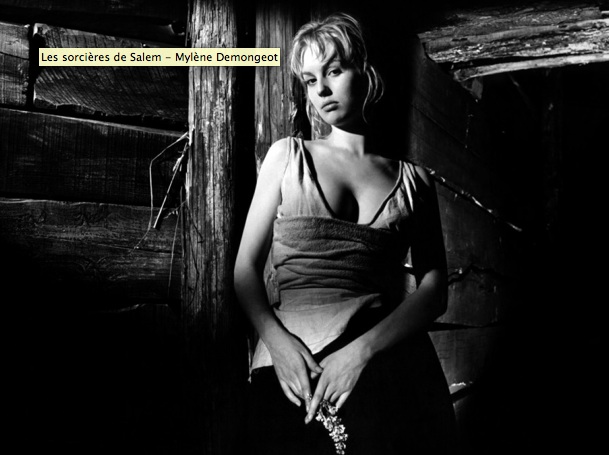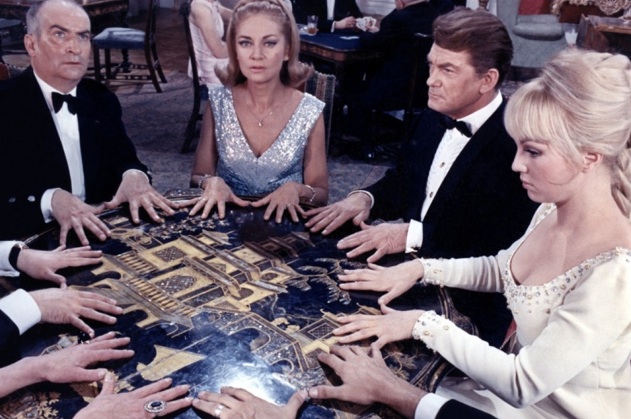 |
|||||||
Cinenews |
News from Ukraine
July, 2009
 |
Mylène Demongeot in The Witches of Salem, 1957 |
This year marked the deepest crisis in Ukrainian film making. The already puny budget allocated for the State Cinematographic Administration over the last year, the equivalent of $6.7 mln., has now been reduced to a virtual zero. Periodic announcements in the press about some last minute injections of cash into the projects that have already been started remained just that - announcements. Two new films were completed: “One Day I’ll Awake” director Maryna Kondratieva and “Day of the Vanquished” director Valeriy Yambursky. Both are debut work in the feature narrative genre, both received devastating reviews - deservedly so. Both raise the disquieting questions: why does the Ministry of Culture and Tourism, time and again, choose to finance projects that are patently lacking in content, form, imagination, and talent? Why does it ignore the young film makers who have proven their capacity to make an original national product, celebrated internationally? It has been four years now that Taras Tomenko, winner of the Berlin Film Festival, has been fighting to get the Ministry’s support for his feature narrative about a love story set against the Chornobyl nuclear power catastrophe. Ihor Strembytsky, winner of the super-prestigious Palme d’or du court métrage (2005) at Cannes IFF, first ever in Ukrainian history, never received as much as a nod of official recognition. The same can be said of a half dozen other young filmmakers. The projects that the Ministry supported over the last year like “Vladyka” (dir. Oles Yanchuk), “Illusion of Fear” (dir. Sasha Kirienko), “Bohdan Zinoviy Khmelnytsky” (dir. Mykola Mashchenko) are critical and box-office failures.
 |
Louis de Funès, Jean Marais, and Mylène Demongeot in Fantômas against Scotland Yard, 1967 |
At the same time when a great film product is made the Ukrainian state seems to go out of its way to sabotage it both at home and abroad. Case in point “The Living”, by Serhiy Bukovsky. This feature documentary about the Great Famine in Ukraine of 1932-1933 was completed last November. The project was funded by the charitable foundation Ukraine-3000 run by Ukraine’s first lady Kateryna Yushchenko. Initially it was announced that the world premier of The Living would take place at the prestigious Berlin IFF in February 2009. The Ukrainian Cinema Foundation headed by Andriy Khalpakchi whose mandate it is to promote Ukrainian film assumed the task of giving maximum international exposure to The Living. Closer to the Berlinale it turned out that the Foundation missed the deadline for submission. The film however was selected for official competition by the Wiesbaden Festival of Central and Eastern European Film. Mr. Khalpakchi without consent of the director and in contravention of that festival rules arranges a public screening for The Living in Cologne, Germany. This disqualifies the film from official competition at Wiesbaden. Thanks to the efforts of the UFCCU The Living was screened to invariably enthusiastic audience reception at Columbia University, Harvard, University of Toronto, Stanford University. Half a year passed, and except for the national premier at the Ukrainian House (Ukrainsky Dim) in Kyiv, there was no public screening of this fine film in theaters or on television. As of July 2009 there are no plans to make the DVD of the film commercially available for those who’d like to have it. Mrs. Kateryna Yushchenko said during her visit to Harvard Ukrainian Research Institute in July 2009 that she would consider this issue.